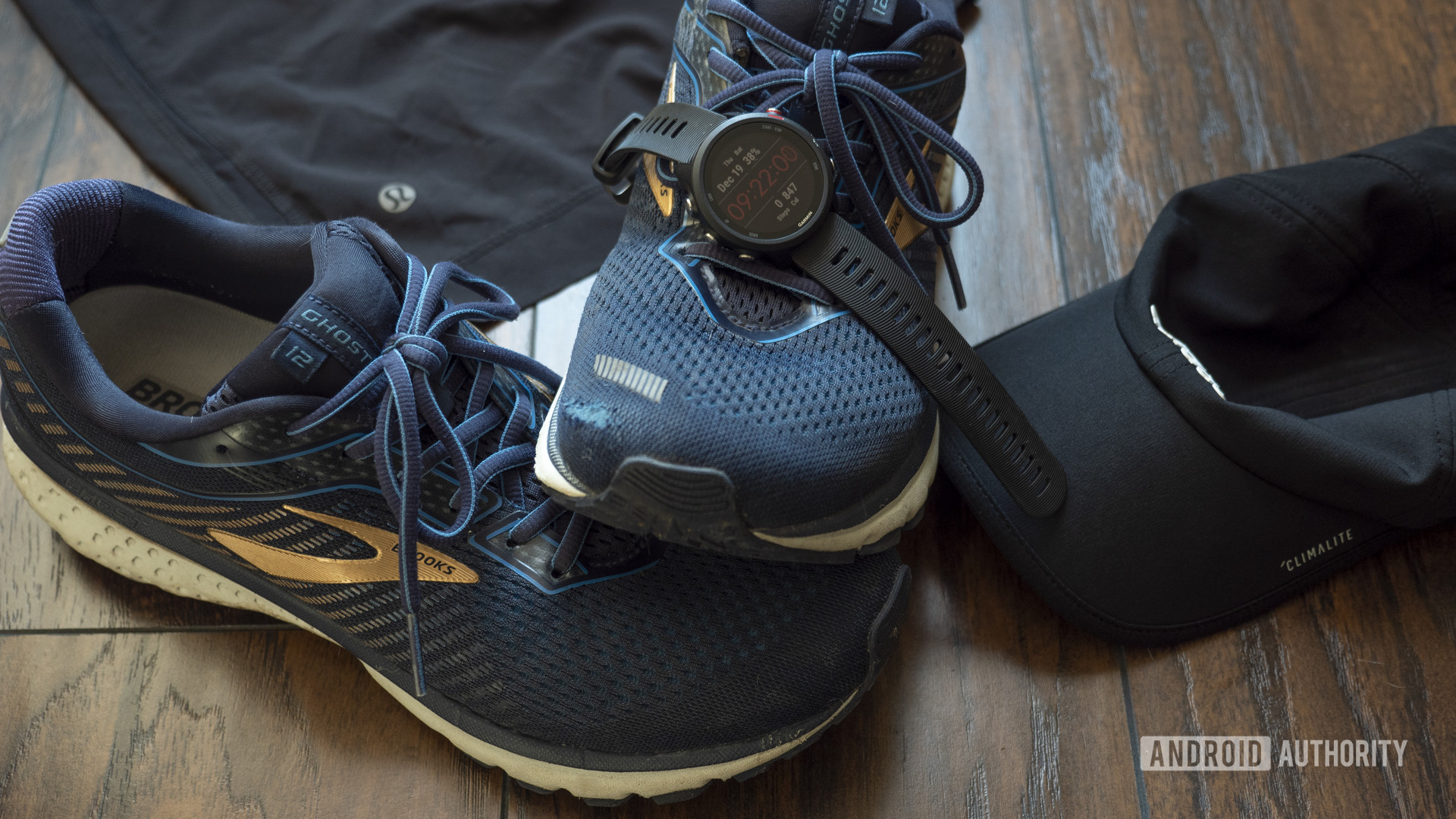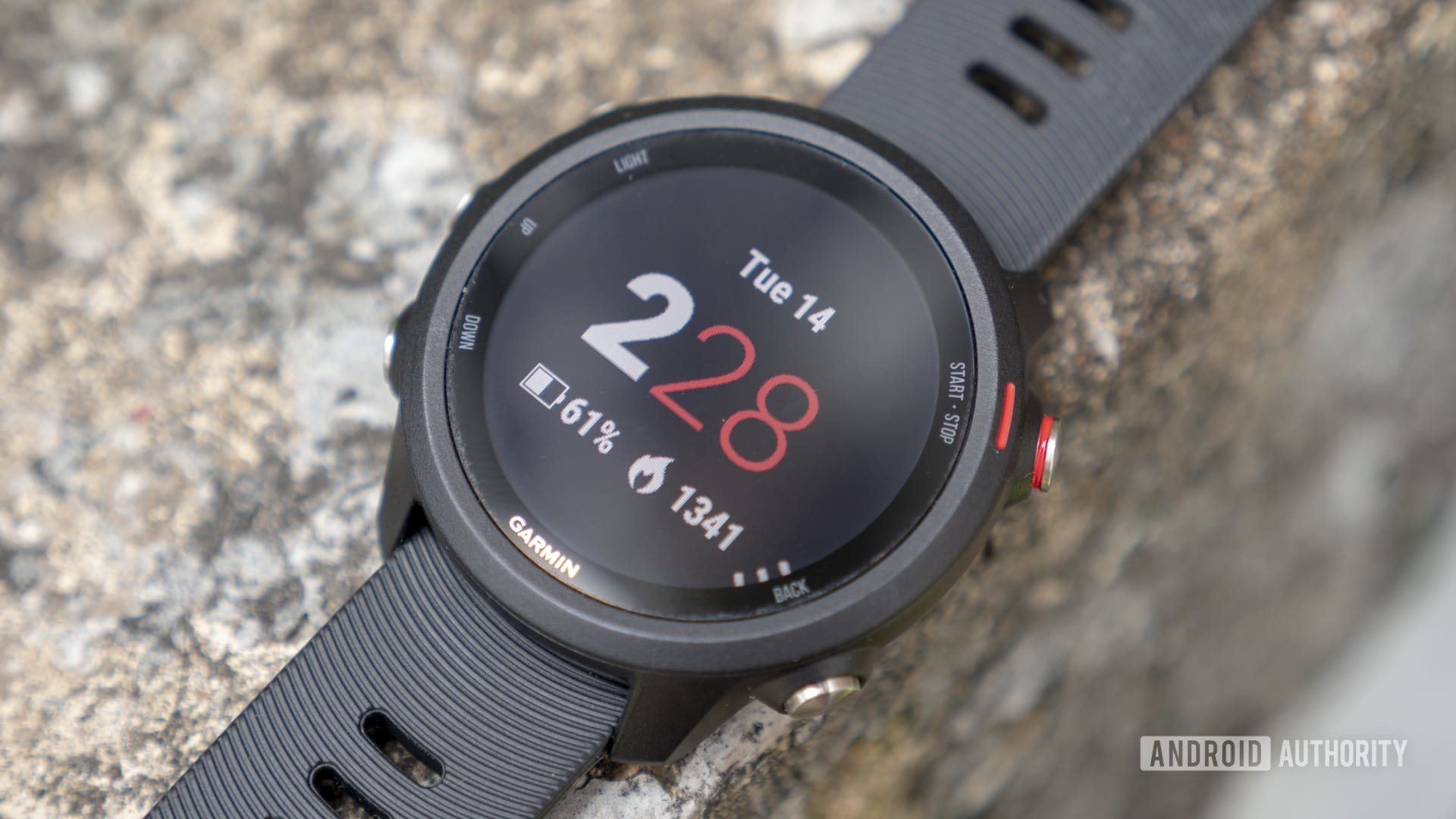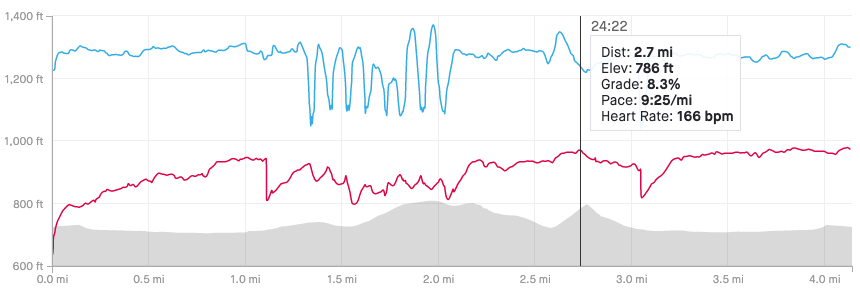In the fitness watch world, you need to pay up to get the highest-end features. Garmin, Suunto, and Polar smartwatches will cost you hundreds of dollars, if not more. The $200-$300 fitness watch segment has been quite underserved in recent years, and Huawei is attempting to carve out a bit of that niche with its latest smartwatch, the Huawei Watch GT 2e.
It offers all the fitness features that came with the original Watch GT 2, now with a sportier design and a cheaper price point. But is it worth buying a cheaper fitness watch with some advanced features, or should you go all-out on a Garmin or Suunto device? Find out in our Huawei Watch GT 2e review.
Design and hardware: This is a nice watch
This is my first time wearing one of Huawei’s GT devices, and I’ve gotta say: I like it. The Huawei Watch GT 2e is bulkier and heavier than I imagined, but it’s not unwieldy. However, I tended to notice it on my wrist more often than most other wearables because I’m not used to wearing a watch this big. It might be too big for people with smaller wrists. It dwarfed my wife’s average-sized wrist.
The big design means there’s room for a big display. The GT 2e’s 1.39-inch AMOLED panel is big and offers plenty of contrast. I never had issues with outdoor visibility when out on a run.
There are two buttons on the right side of the case: one for your app list and one customizable button. The buttons are more flush with the case compared to the Watch GT 2, making the design less of a nuisance for your wrists when working out. Unfortunately there’s no speaker like you’d find on the GT 2, so don’t expect to take Bluetooth calls from your wrist.
The silicone strap also gets an upgrade compared to its classy predecessor, with perforated holes for increased breathability. I like the quality of the straps. They’re not too sticky or gummy, and they don’t collect lint. You can swap the Huawei Watch GT 2e bands out with other 22mm watch straps, though you probably won’t want to — the way the watch lugs curve downward makes for an awkward look when connecting another style of strap.
One of the headline features of Huawei’s smartwatches is battery life. Wear OS and Apple Watches top out at a couple days, while Garmins and Fitbits can last around a week. The Huawei Watch GT 2e can last a whopping two weeks on a single charge thanks to its 455mAh battery. That about lines up with what my watch achieved during testing.
There is an always-on display option that will decrease your battery life by a few days. Even with it turned on, along with the heart rate sensor and the occasional GPS workout, I still managed to get great battery life.
Fitness and health tracking: Saving grace
Here’s where the Watch GT 2e really shines. The GT 2e has all the standard sensors you’d want out of a midrange fitness tracker, including onboard GPS, an optical heart rate sensor, accelerometer, gyroscope, and more. It’ll keep track of your steps taken, distance traveled, active minutes, resting and active heart rate, stress levels, calories burned, floors climbed, and sleep. All standard stuff.
There are 15 GPS-enabled workout tracking modes available, including running, cycling, swimming, climbing, and more. Using these modes, the watch will give you route details, pace, duration, calories burned, heart rate zones, cadence, and altitude details.
Huawei also boasts 85 other workout modes for the GT 2e, and a lot of them are fun exercises you don’t see supported on other watches: belly dancing, parkour, skateboarding, and other “general� activities. For these types of activities, the GT 2e will keep track of your total duration, heart rate, and calories burned. The GPS isn’t running for these activities, though.
The GT 2e will also support automatic activity recognition for six workouts: indoor/outdoor running, indoor/outdoor walking, elliptical, and rowing. These won’t be added to the watch until a software update arrives in mid-May, so we weren’t able to test this feature.
A total of 13 running courses are also available on the watch, allowing you to choose the run that suits your needs at any given time. I like that Huawei included a variety of guided activities that range from slow and steady to fast-paced.
Huawei made sure to include onboard GPS+GLONASS to satisfy the running crowd. I tested the Huawei Watch GT 2e during numerous outdoor runs over the past few weeks, and it held up well against my Garmin Forerunner 245 Music and Suunto 7.
GPS accuracy was fine, but not great. The Huawei Watch GT 2e showed me running in the grass and through buildings much more than I actually did throughout my outdoor runs. This is perhaps why the GT 2e reported overall distances of about 0.03-0.05 miles less than my Forerunner 245 on any given run. The GT 2e was never completely off for the entirety of my runs, just some of the time.
The optical heart rate sensor proved to be decent throughout my testing. The screenshots below show a 4.14-mile HIIT run with the GT 2e, Forerunner 245, and Wahoo Tickr X chest strap. (If you’re wondering why the overall running times are off between screenshots, it’s because the GT 2e must not have registered my “resume� tap after a quick pause from the 11-13-minute mark.) Overall, the GT 2e’s results were impressive in many areas, though lacking in others.
Neither the Forerunner nor the GT 2e were able to dip down as low as the Tickr X chest strap at my lowest point of the run. The Tickr X recorded 111bpm, the Forerunner recorded 123bpm, and the GT 2e recorded 120bpm right after my 10-minute warm up. Wrist-based monitors tend to lag a bit when reaching peaks and valleys in intense workouts, so this isn’t too surprising. This wasn’t the only time both wrist devices failed to dip down as low as the Tickr X, either.
However, the Garmin and Huawei were both much closer to the mark at the high point of the workout. As I sprinted (well, tried to sprint) up a steep hill, the Tickr X recorded 173bpm, the Forerunner recorded 166bpm, and the GT 2e recorded 164bpm. That’s more like it.
The Huawei Watch GT 2e’s heart rate sensor is about on par with my Forerunner 245’s heart rate sensor in terms of overall trends throughout the workout. No wrist-based solution is going to be perfect — for that you need a chest strap — but I think the sensor Huawei delivered here is solid.
Unfortunately if you don’t want to use the GT 2e’s sensor, there’s no option for external heart rate sensor pairing.
See also: The best heart rate sensors | The best Fitbit alternatives
I’d also like to bring up a huge pet peeve when it comes to other fitness companies. Some companies spend so much time developing their apps, only to fall short on data analysis. If I’m scrolling through my health stats, I want to see my heart rate data in a big landscape graph, not in some tiny portrait-only graph that doesn’t give you any details (looking at you, Google Fit). In the Huawei Health app, it’s super easy to see all of your health stats clearly and concisely. Good stuff.
While we’re on the topic of Huawei Health, iOS users should note that both apps aren’t created equally. The Android Huawei Health app offers more data and is generally more fully featured than its iOS counterpart for whatever reason. iOS users also don’t get access to stress tracking or music storage (ugh).
When you’re done with an exercise, the Watch GT 2e provides decent training features. You can see your training effect (aerobic+anaerobic), training load, suggested recovery time, and workout status on your wrist. Huawei is using algorithms from Firstbeat — the same company that handles Garmin and Suunto devices — which is why many of the same training pages show up on all of these devices.
VO2 max estimates are also available for the post-run. Other reviewers have found these readings to be on the high side, but not in my case. The GT 2e reported nearly the same numbers, if not lower in some cases, than my Forerunner 245.
Huawei included a pulse oximeter in the Watch GT 2e to estimate blood oxygen levels. The SpO2 sensor doesn’t run while sleep tracking is enabled — it’s only available for on-demand readings on the watch itself. That means it won’t help you detect early signs of breathing disorders like sleep apnea. It’s a bummer, because that’s where these types of sensors are most useful. I also found that the pulse oximeter was far more willing to offer up a 100% SpO2 reading than my other watches.
Huawei’s stress tracking feature makes its return from the Watch GT 2. There’s a whole page dedicated to it on the watch. After filling out a “How stressed are you?� questionnaire and enabling it in the smartphone app, you can track your stress automatically from your wrist throughout the day. It’s difficult to judge how accurate these readings are, but they did line up with my Fitbit Versa 2 and Garmin Venu’s stress levels.
Fitbit and Garmin have been making huge strides in sleep tracking lately, and it’s nice to see Huawei offer up some solid sleep tracking of its own. First, accuracy. I didn’t notice any major outliers in sleep tracking during my testing. No random steps in the middle of the night, and the GT 2e was usually able to record me falling asleep within a few minutes of me dozing off.
Huawei Health gives you lots of insights into your nightly, weekly, and monthly sleep trends. Every morning, you’ll get a summary of your average sleep quality in the form of a sleep score from 1-100. You also get averages of how much deep, light, and REM sleep you’re getting, as well as low, normal, or high ratings based on what other users are getting.
If anything, I would like to see Huawei improve on personalized sleep insights. No matter if you had a good or bad night’s sleep, the app will simply tell you the same insights on how to improve every time.
Smartwatch features: Few and far between
The Huawei Watch GT 2e, and all other recent Huawei watches for that matter, aren’t going to be for anyone looking for a full-blown smartwatch. Huawei makes it a point to provide excellent battery life over an abundance of features. The GT 2e gives you the basics (and I mean only the basics), so keep that in mind before categorizing this as a real smartwatch.
You can receive smartphone notifications on the GT 2e — and notifications come through quickly — but they’re not actionable. You can read them, then dismiss them. Oftentimes, you can’t click on a notification to expand it, so reading more than the subject line of an email is near impossible.
One shining spot here is the inclusion of music storage. You can store up to 500 songs on the Huawei Watch GT 2e, and Huawei makes it a breeze to load up music files. You can do so from the Huawei Health app (Fitbit, Garmin, and everyone else, take note!). There’s no compatibility with third-party music services.
There are a handful of first-party watch faces available on the GT 2e. I count 12 on my Huawei Watch GT 2e review unit. Only one is customizable. UK users can download third-party watch faces, but those aren’t available in most parts of the world. Bummer.
Other on-device apps include the weather, a timer, and an alarm app. And… that’s about it. You don’t get contactless payments support. Also, don’t expect to send your workout stats to many third-party fitness apps. MyFitnessPal and Google Fit support are all you get. No Strava, though.
Huawei’s first self-developed wearable chip — the Kirin A1 — is powering the GT 2e. I don’t know if it’s the chipset or the touchscreen, but this watch is extremely laggy. Swipes sometimes took multiple seconds to load, and I experienced more ghost touches than I would have liked. If you do a lot of swiping around on your smartwatch to check performance stats, be warned.
Huawei Watch GT 2e review: Value, competition, and the verdict
The Huawei Watch GT 2e is available on Amazon UK, Argos, and Huawei’s UK website for £159.99 (~$198). That’s an extremely aggressive price point for what’s on offer. The next-best fitness smartwatch near this price is the Fitbit Versa 2 at $149.95 (~£120), but even then you’re missing out on built-in GPS.
The Huawei Watch GT 2, sportified
Huawei managed to shave off ~£40 from the cost of the classier GT 2 watch and added a few features in the process. So, should you buy it?
I don’t think everyone should, no. Someone who wants a robust smartwatch experience should stay away from any recent Huawei smartwatch. They’re all just missing too many features. Also, I’d urge iOS users to take a better look at a cheaper Apple Watch over the GT 2e.
Android users who are looking for a mid-tier alternative to a Garmin watch will find a lot to like with Huawei’s latest smartwatch. The low price, good fitness tracking, and overall design make the lack of third-party apps sting a bit less. I think everyone should keep an eye on Huawei’s smartwatches going forward. Once the company improves its fitness reporting and adds more smart features, the GT line might be a force to be reckoned with.
More posts about wearables
What are your thoughts on our Huawei Watch GT 2e review? Are you planning on buying one?




























